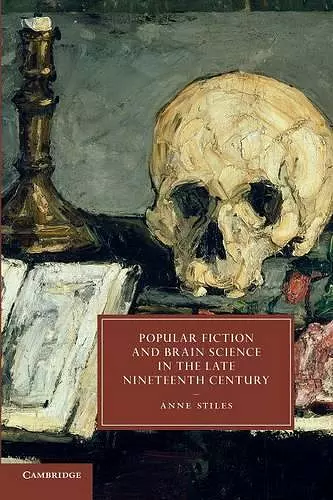Popular Fiction and Brain Science in the Late Nineteenth Century
Format:Paperback
Publisher:Cambridge University Press
Published:21st Aug '14
Currently unavailable, and unfortunately no date known when it will be back
This paperback is available in another edition too:
- Hardback£90.00(9781107010017)

Examines how Gothic romances like Dracula and Dr Jekyll and Mr Hyde expressed fears and visionary possibilities suggested by neurological research.
Explores how Gothic romances engaged with late Victorian cognitive science. The book explains why popular novels like Dracula and Dr Jekyll and Mr Hyde expressed fears and visionary possibilities suggested by contemporary neurological research. This topic will interest literary scholars, historians of science and fans of Gothic literature more generally.In the 1860s and 1870s, leading neurologists used animal experimentation to establish that discrete sections of the brain regulate specific mental and physical functions. These discoveries had immediate medical benefits: David Ferrier's detailed cortical maps, for example, saved lives by helping surgeons locate brain tumors and haemorrhages without first opening up the skull. These experiments both incited controversy and stimulated creative thought, because they challenged the possibility of an extra-corporeal soul. This book examines the cultural impact of neurological experiments on late-Victorian Gothic romances by Robert Louis Stevenson, Bram Stoker, H. G. Wells and others. Novels like Dracula and Dr Jekyll and Mr Hyde expressed the deep-seated fears and visionary possibilities suggested by cerebral localization research, and offered a corrective to the linearity and objectivity of late Victorian neurology.
"Popular Fiction and Brain Science in the Late Nineteenth Century establishes the genre of the gothic romance as a vital component of Victorian scienti*c culture, indisputably demonstrates the importance of literary products as primary sources for interpreting the history of neurology, and sets an impeccably high standard for scholarship in both literary studies and the history of science, medicine, and technology." -Stephen Casper, Project Muse
ISBN: 9781107442467
Dimensions: 229mm x 152mm x 15mm
Weight: 370g
274 pages